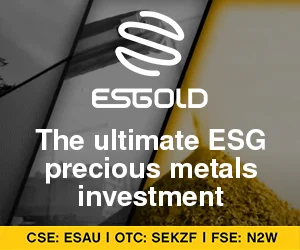In a significant development for the West African nation, Mali’s government has announced plans to establish a state-controlled gold refinery in partnership with Russia’s Yadran. This initiative aims to enhance the country’s bullion revenue amid rising global commodity prices, reflecting a broader trend among West African nations to secure greater returns from their natural resources.
The Formation of SOROMA-SA
The new company, named SOROMA-SA, will be predominantly owned by the Malian state, holding a 62% stake, while Yadran will retain the remaining 38%. This strategic partnership was confirmed by Mali’s Economy and Finance Minister, Alousseni Sanou, who emphasized the importance of this venture in bolstering the nation’s economic prospects.
Location and Capacity of the Refinery
The refinery is set to be constructed on a five-hectare site near Bamako’s airport, strategically positioned to facilitate logistics and operations. Once operational, it is expected to process 200 metric tons of gold annually, a substantial increase from Mali’s current output of approximately 50 tons. This ambitious expansion is poised to significantly elevate Mali’s standing as Africa’s second-largest gold producer.
Legislative Backing and Compliance
The establishment of SOROMA-SA received the green light from Mali’s National Transition Council, which approved the shareholding structure. Minister Sanou highlighted that the new refinery would assist local miners in adhering to the revised mining code, which has been designed to enhance compliance and operational standards within the sector.
Revised Mining Code and Regional Trends
Mali’s recent adoption of a revised mining code reflects a growing trend among West African nations, including Burkina Faso, Niger, and Guinea, to increase state stakes in mining operations and raise gold royalties. These changes aim to ensure that a larger portion of the wealth generated from natural resources remains within the country. However, such policies have raised concerns among Western investors, prompting some to pivot towards partnerships with Russia and China.
Overcoming Certification Challenges
One of the critical challenges facing Mali’s existing gold refineries is the lack of certifications, such as those from the London Bullion Market Association (LBMA). This deficiency has forced miners to process gold abroad, limiting the country’s ability to access global markets. A senior official from the Mines Ministry, speaking on condition of anonymity, indicated that Yadran’s involvement would be instrumental in securing the necessary certifications, thereby opening up new avenues for Mali’s gold industry.
Future Prospects and Leadership Involvement
The construction of the refinery is set to be commissioned by Mali’s military leader, Assimi Goita, later this June. This involvement underscores the government’s commitment to revitalizing the gold sector and ensuring that Mali capitalizes on its rich mineral resources.
Conclusion
Mali’s initiative to establish a state-controlled gold refinery in collaboration with Yadran marks a pivotal moment in the country’s economic strategy. By enhancing domestic processing capabilities and securing greater control over its gold resources, Mali aims to boost its revenue and strengthen its position in the global gold market. As the country navigates the complexities of resource management and international partnerships, the success of SOROMA-SA will be closely watched by both local stakeholders and international investors.




